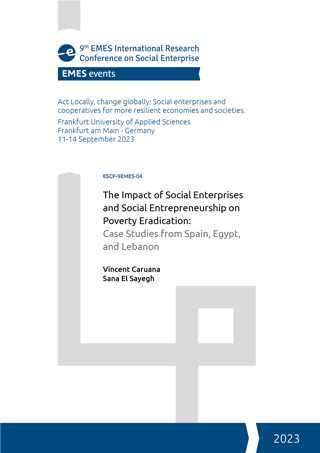Abstract
In recent years, social enterprises have been emerging as key in contributing to poverty eradication and to sustainable development. These purpose-driven businesses combine entrepreneurial strategies with a commitment to generating positive social impact, transcending the narrow focus on profit maximization.
This piece argues that social enterprises are an important vehicle for contributing towards poverty eradication. Based on the case studies from three different contexts (Spain, Lebanon, and Egypt), this paper shows that Social Enterprises are able to develop innovative solutions and business models that empower marginalised groups through including them in the job market and creating a space for them to solve their community problems (Nándori & Lipták, 2022). Being focused on social impact, social enterprises are key in adhering to systemic barriers and fostering environments that are just, inclusive, and empowering (Lateh et al., 2018). This paper also sheds light on the importance of providing a proper infrastructure for such organisations to prosper and maximise their impact on poverty eradication through the right legal frameworks and policies.




